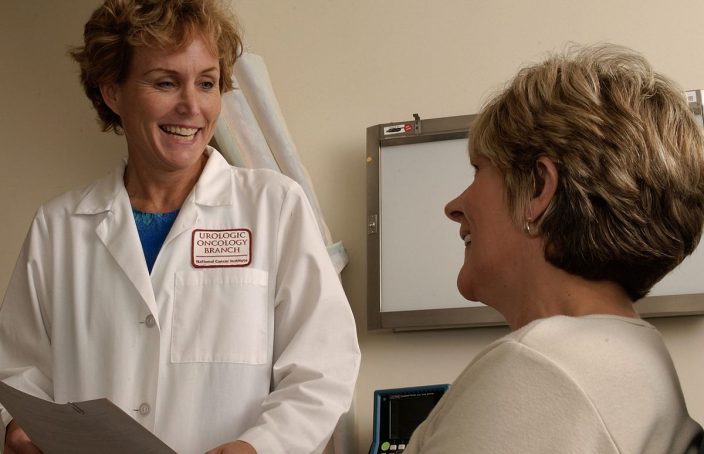Healthcare professionals (HCPs) should be helping you towards achieving healthy blood sugar levels as best you can.
Some HCPs are great at this. However, we have heard people with diabetes saying how they’ve been achieving amazing results and perfectly healthy sugar levels through eating low carb, only to be told by someone in their health team that they’re doing it all wrong!
Things are beginning to change though, and we hope that feeling open to discuss the successes you’ve had with low carb will help doctors, nurses and dietitians to become more open-minded about the low carb lifestyle.
The aim is for the HCP and you to reach a shared goal. If you feel like you are being lectured at, it’s good to raise the question of whether the two of you can reach a shared aim.
On the other side of things, try to be aware if you find yourself lecturing your doctor or nurse too much too. Having a good relationship with your health team is essential. You never know when you’ll really need their support.
Understanding healthcare professionals
Diabetes.co.uk has long supported people with diabetes who opt to go low carb and we’re aware that there is sometimes a disconnect between what works for the person and what their health team thinks they should be doing.
Whilst low carb is becoming ever more popular, there is still uncertainty within HCPs. For some, the idea of low carb goes completely against what they’ve been taught regarding how someone with diabetes should be managing their diabetes.
Try not to be too put off by this. What we’ve found is that some HCPs need a bit of time to develop trust in someone who is following low carb.
If you and your HCP disagree on things, it doesn’t mean it always needs to be this way. In some cases, it may be you, the patient, reassuring the doctor or nurse about how your diabetes is managed.
Even if you’re dead set on what you’re doing, it’s good to listen to what your health team is telling you. They shouldn’t dictate how you live your life but may share some useful information that could be important to take into account.
With this said, there is a growing number of HCPs who are embracing the success that low carb often brings. If you have a supportive doctor or nurse, or develop a good trust with them over time, this can be a real boon to your health and can be very positive for them too.
At the opposite end of the scale, if you have a doctor or nurse that you really are not on terms with, you can choose to be seen by a different doctor or nurse or may opt to switch practices. There’s usually a fair amount of scope in this area so don’t give up hope that you’ll find an understanding health team.
Dealing with carb pushers
There are some HCPs who insist that people with diabetes must eat a certain amount of carbs at each meal.
In general, this is not the case. There is no such thing as an essential carbohydrate as the body can make glucose from both protein and fat. The good thing is that the body won’t make excessive amounts of glucose from fat or protein. This is why low carb tends to be much better for sugar levels than a carbohydrate-focused diet.
It’s worth noting here that carbohydrate is simply a chain of glucose molecules. This is something that some HCPs may have forgotten despite treating people with diabetes for many years.
If a member of your health team is insisting you eat carbs, you may need to give them some reassurance about what you’re doing. Try to be considerate of their concerns as they will have responsibility for your health. As stated above, this does not mean they should be dictating how you live.
Please be aware that, in some cases, the HCP may be looking to address a pertinent point. For example, if you are on glucose-lowering medication such as insulin, glinides or sulphonylureas, then these may lead to low blood sugar on a low carb diet. In this case, adding carbs is one option, but another, often better idea is to discuss reducing the medication. This is one example but there may be other reasons why the HCP is stressing a point.
Dealing with HbA1c inflaters
One of the other concerns we see on the forum is when people with diabetes have been told their HbA1c is too low.
The bottom line is that, if you’re staying well controlled and not spending too much time in hypo territory, then your HbA1c will be fine.
People with type 1 diabetes in particular may face the “your HbA1c is too low” comment. If you get told this, one way to reassure your HCP is if you can show them readings on your meter or CGM/Libre that show you are not going too low or not going low for long periods of time.
If you are having significant low blood sugars, this will need addressing such as by reducing one or more insulin doses. Your health team should be able to help you to achieve this.
HCPs often get worried about what blood sugars may be doing overnight so if you can show overnight readings, this can provide them with the reassurance they may be looking for.
In some cases, your health team may offer you a trial of a CGM. This can be a useful way to learn about your control if you’re offered this option.



